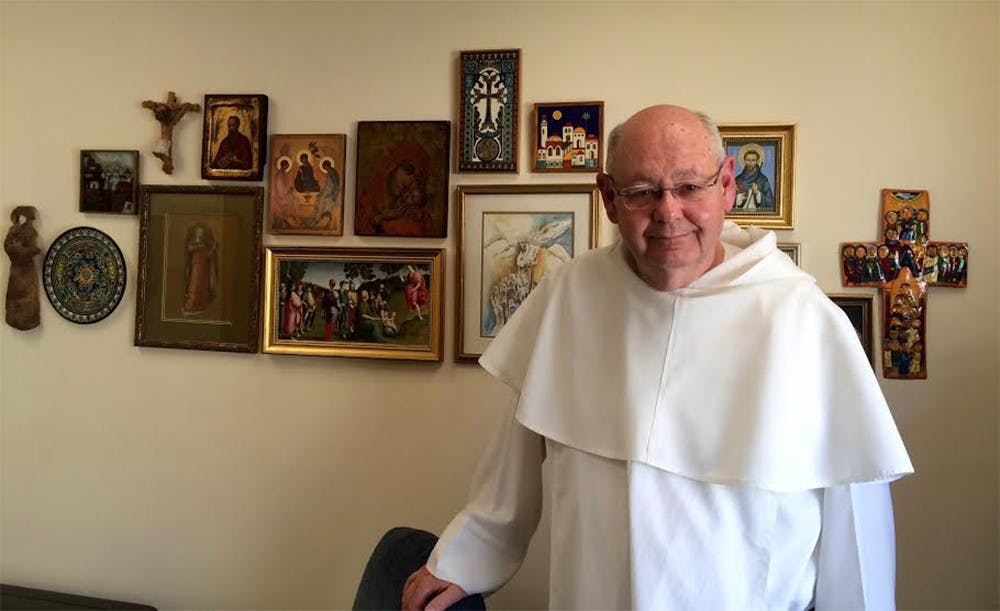For the world’s 1.2 billion Roman Catholics, it’s supposed to be fairly simple. Look toward the high, columned walls of the Vatican, and they’ll give you guidance.
For decades, the institution’s message has been consistent: birth control goes against God’s will, homosexuality is wrong, marriage is meant to be for life.
But as society continues to accept and embrace different lifestyles, many modern-day Catholics have begun to wonder if their church should do the same. With the 2013 ordination of Pope Francis, whom many have called the “cool Pope,” it seemed as though a change might be coming.
In 2015, Francis issued “Laudato si,” which called for a “bold cultural revolution” to fight global warming. On a plane from Asia, he once said it wasn’t necessary for Catholics to “breed like rabbits,” and on a plane from Mexico, he said birth control could be useful in stemming the spread of the Zika virus.
But for those expecting a revolutionary change of attitude in the Pope’s newest 256-page document titled “Amoris Laetitia,” or “The Joy of Love,” the read may be anticlimactic.
Pope Francis did not accept same-sex marriage as equal to heterosexual unions in the volume, which was released Friday. Nor did he clarify what might be appropriate uses for birth control or simplify the process for remarried Catholics to receive communion.
Essentially, clergy and analysts have deduced “The Joy of Love” instructs the Church to be welcoming and accepting of all people.
In the document, the Pope admits society, family and love are complex and that individual churches, priests and Catholics need to interpret the doctrine at a personalized level.
In a way, he’s giving a nod and a wink to something some Catholics say they have always done: look at the rules, look at themselves and find their own way into, or out of, the Church.
***
Sitting in the second-grade classroom of his Catholic school, Jon Osting experienced his first crush on a boy.
As he grew up, the feelings continued, as did his teachers’ litany of sins that could land someone in the fiery confines of hell. He said he felt disheartened.
Osting, a 2015 IU graduate, said he pushed the feelings away for years.
“I always imagined myself just growing up single with a fun pet or something,” he said. “I didn’t want to imagine being married to a guy or even just having a relationship with one because it was so impure or unclean.”
He continued to keep the thoughts to himself but slowly began to recognize they weren’t something he could control. Osting’s time in the church pews as a student at IU became more focused on reflection and community than the specific teachings of Catholicism, he said.
He came out to his friends and family before his junior year.
“Before I came out, I related to my faith in more of a formulated, kind of forced way,” he said. “After, though, I just realized that I was connected to everything around me. It’s a much deeper connection with God.”
Osting now only attends mass on Christmas and Easter, he said. He considers himself spiritual rather than Catholic. Even with this distance, though, he said he doesn’t resent the Church.
“I’m actually very grateful for all of those years I lived in fear,” he said. “Without them I wouldn’t know what the opposite was. I wouldn’t be able to experience this comfort and peace that I have now in the same way.”
In spite of this gratitude, Osting said he thinks the Church needs to change its tone.
“I feel like if the Catholic church doesn’t change with the people, it’s going to dissolve,” he said. “And it’s taking them a long time, but it seems like they’re at least moving in the right direction.”
***
When Betsy Kovacik got married, she fully intended it to be for life.
“I believe in my heart that I’m a good Christian, I’m a good Catholic, I’m a good person,” the Indianapolis mom said. “It wasn’t my idea to get divorced, but at a certain point you need to prioritize the health of the family as a whole. Isn’t that a religious thing in itself?”
It wasn’t until after she got a divorce that she learned she would still be allowed to receive communion. It’s not until you remarry that right is taken away, according to Catholic doctrine. That is, unless you’ve had your previous marriage officially annulled.
Though Kovacik remains a devoted Catholic, she supports gay marriage and birth control use. She said she recognizes it’s difficult for the leadership to make changes, but she appreciates the message of acceptance from the pope. For her, the Church’s specific regulations have little to do with her connection to the faith.
As a nurse and breast cancer survivor, she feels closest to God in a small, Catholic hospital chapel. Surrounded by doctors, patients and family members, she said she’s enveloped in warmth and commitment.
“That’s why I’ve chosen that environment,” she says. “That’s why I don’t want to give it up. It’s a community, and I think that’s what religion should be — a community.”
***
In his office at St. Paul Catholic Center, Father John Meany thumbed through his highlighted, sticky-note-covered copy of “The Joy of Love.”
“I would make it clear that not all discussions of doctrinal, moral or pastoral issues need to be settled by interventions of the magisterium,” he read from the text and clarified the magisterium is the teaching office of the church.
This is a break from tradition, Meany said.
“It’s not just when Rome speaks, that’s it,” he said. “There’s an old expression: ‘Rome speaks, case closed.’ But what he’s saying here is that we need to have unity within the Church, but at the same time we have to admit that it’s a big thing. The cultural differences are enormous.”
Meany said this can be a delicate balance. As pastors see the world change around them, they need to stick to the rules without alienating people or making them feel in any way unwelcome or unloved.
“I think some people think that church rules are just sort of arbitrary, capricious regulations that a bunch of dirty old men cooked up to make people miserable, but that’s not the case at all,” he said. “We’re trying to help people have a healthy, joyful life.”
To do that, Meany said he believes that some things are set in stone — like the sanctity of marriage between a man and a woman.
Yes, he said, there is a place for gay people in the Catholic church. Yes, he said, there are biological differences that contribute to someone’s sexuality. No, he said, gay people probably can’t purposefully change their sexual preference.
But the rules against gay marriage can’t be changed, according to the Church.
So what are gay people supposed to do?
“This is a difficult question, and I don’t know exactly what the answer is,” he said. “It just goes to show that we’re dealing with something that’s more mysterious than we understand and can appreciate.”
Whatever the answer is, it won’t be found in those 256 pages. Meany said that is kind of the point.






